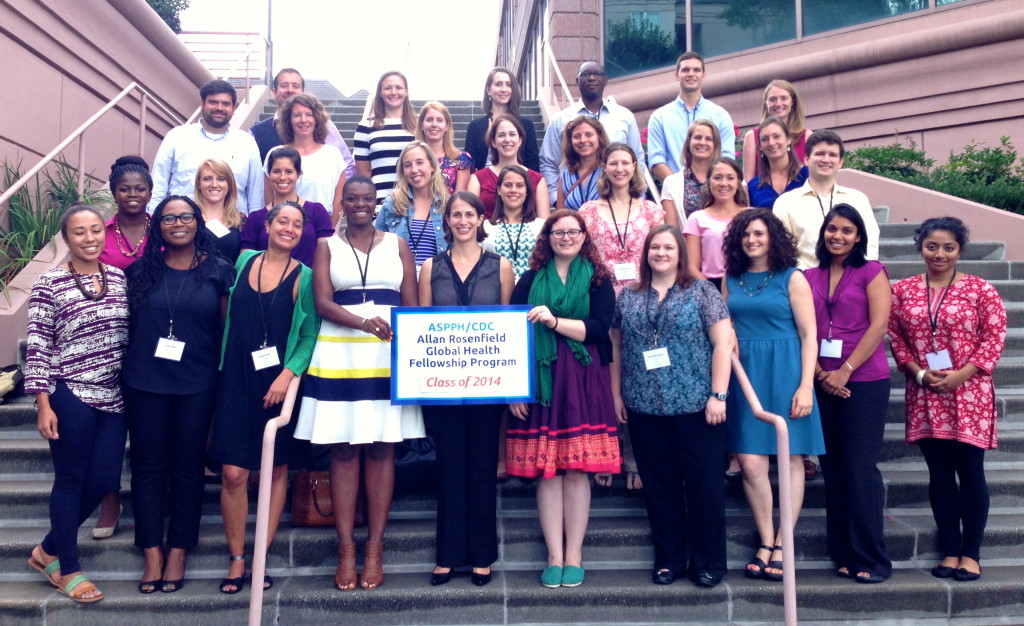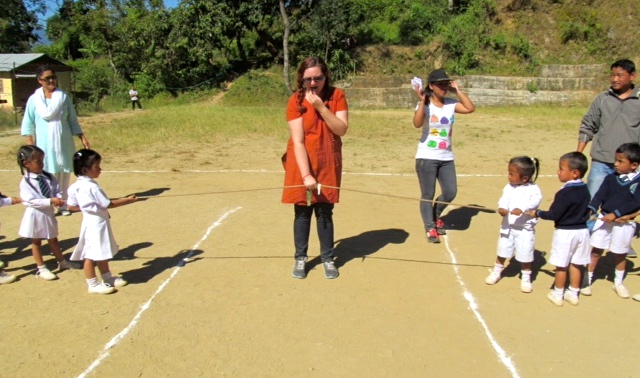
The Association of Schools and Programs of Public Health (ASPPH), with support from the Centers for Disease Control and Prevention (CDC), established a fellowship in honor of Dr. Allan Rosenfield, former Dean of the Columbia University Mailman School of Public Health. The ASPPH/CDC Allan Rosenfield Global Health Fellowship Program provides training to graduates of the schools and programs of public health who have an interest in global health and HIV/AIDS. The training includes practical, first-hand experience on the front lines of international public health both domestically and in parts of rural sub-Saharan Africa and Asia. Fellows are placed within a global health program at CDC headquarters in Atlanta, or in one of the 50 foreign countries where CDC is working. To be eligible for this program, applicants must be U.S. citizens or hold a visa permitting permanent residence (“Green Card”) in the U.S. and have received their Masters or Doctorate degree within the last five years from an ASPPH member graduate school or program of public health accredited by the Council on Education for Public Health (CEPH).
To learn more about this fellowship opportunity, we interviewed current fellow Megan Casebolt, a graduate of Washington University in St. Louis who is currently placed in Addis Ababa, Ethiopia.
1. What inspired you to apply for the ASPPH/CDC Allan Rosenfield Global Health Fellowship?
I have always wanted to work in the field of international development. An internship during study abroad in Botswana that involved working with HIV orphans pointed me towards the field of public health. After graduating from Washington University in St. Louis with a dual Masters in Social Work/Masters in Public Health, I wanted to start working the field of global health. My first position out of grad school was as an American India Foundation William J. Clinton Fellow for Service in India. This position taught me about the ins and outs of implementing health programming in the developing world, which was very useful. After finishing that fellowship, I wanted a position where I could learn about the process of going public health through foreign aid programs. This led me to the ASPPH/CDC Allan Rosenfield Global Health Fellowship. In addition to getting to work with the CDC in an international setting, there is a training fund that allows you to attend trainings around the world to improve your skills and continue your education. During this fellowship I hope to gain additional training on including gender issues in health programs and planning behavior change communication programs, experience working with different types of implementing partners, and greater knowledge of the HIV/AIDS epidemic in Africa.
2. What is a typical week like for a Fellow?
Each fellow has a very different job description depending on whether they are in an international site or at headquarters in Atlanta. Also, it depends on the division and branch they have been assigned to. I am working in Ethiopia in the HIV prevention branch of the Division of Global HIV/AIDS. My main job is to help the CDC-E implementing partners include gender issues in their prevention programs as is now required by the President’s Emergency Plan For AIDS Relief (PEPFAR). My week usually involves meeting with the other branch staff and researching best practices and examples of programs that include gender in different ways and for different populations and contexts. I also draft repots, make suggestions for changes to drafts of program plans from implementing partners, and visit implementation sites in the field to watch program implementation in progress. I work most of the time in the U.S. Embassy in Addis Ababa, so I’ve had the opportunity to meet with people working in other U.S. agencies here, including the State Department and USAID.
3. What tips would you give others applying to the fellowship?
The process of selecting finalists for an interview involves objectively scoring the written application. Because of this, make sure your CV or resume includes detailed information about your positions and that it is very clear. Also, make sure your essays are really clear and well thought out to assist in this process. When you get to the interview stage, you will be interviewing with specific people for specific positions so make sure you read the job description they send you and think of ways that your previous jobs would apply to that job. Don’t just give generic answers. If they don’t provide you with a job description ahead of time, ask them to send you a brief email describing the duties of the fellow. Also, you only qualify for this fellowship if you graduated with a MPH or doctoral degree in public health from a school that is an ASPPH member within the last five years. Make sure that you have one of these degrees and you check the ASPPH website to ensure your school is a member before you take the time to apply.
Megan Casebolt is a global health professional focusing on sexual and reproductive health. She has an MSW and MPH from Washington University in St Louis and has participated in the AIF William J. Clinton Fellowship for Service in India and the ASPPH/CDC Allan Rosenfield Global Health Fellowship.
© Victoria Johnson 2014, all rights reserved.
